How to Choose a Digital Marketing Agency That Delivers Results
- Sep 13, 2025
- 14 min read
Choosing the right digital marketing agency isn't about being wowed by a flashy presentation. It's about finding a true partner who’s obsessed with your business goals, not just their billable hours. Too many businesses fall into the same trap: paying inflated agency fees for a generic, one-size-fits-all strategy that’s usually handed off to a junior-level employee.
The Real Cost of Hiring the Wrong Marketing Partner

Let’s be honest. That slick, full-service agency pitch often ends in a whole lot of disappointment. I’ve heard the story a dozen times: months tick by with confusing reports, no real growth to show for it, and a strategist who’s impossible to get on the phone. The issue isn't always that you hired a "bad" agency; it’s that you hired the wrong type of firm for your actual needs.
The single biggest mistake is paying a premium for a jack-of-all-trades. These bloated agencies often pass your account down to a junior manager juggling ten other clients. The result? You get a boilerplate strategy that just checks the boxes but does absolutely nothing to move the needle on your bottom line.
Moving Beyond the Bloated Agency Model
This guide is your roadmap for sidestepping that common pitfall. The goal here is to completely shift your mindset. Stop looking for a big, do-it-all team and start seeking out a genuine specialist—an expert with deep, focused knowledge in a critical area, like Google Ads.
Think about what that shift really means for you:
Direct Accountability: You’re talking directly to the expert running your campaigns, not an account manager playing telephone.
A Truly Custom Strategy: Your campaigns are built from the ground up for your specific goals, not pulled from some generic agency playbook.
Budget Efficiency: Your money goes directly into expert strategy and execution, not into funding a huge agency's overhead and multiple layers of management.
The most expensive marketing is the marketing that doesn't work. A lower monthly fee from a big agency might look good on paper, but it's a total waste if it doesn't generate a positive return. A specialist’s expertise is designed to maximize every single dollar you spend.
This distinction is everything when you're deciding how to choose a digital marketing agency. Are you just looking for a vendor to manage tasks, or do you need a strategic partner who is genuinely invested in your growth? A specialist’s reputation is built on delivering measurable results, not just sending pretty monthly reports.
Throughout this guide, we'll walk through exactly how to identify and vet these experts, making sure your marketing budget drives tangible growth instead of just covering an agency's payroll.
First, Define What Real Success Looks Like
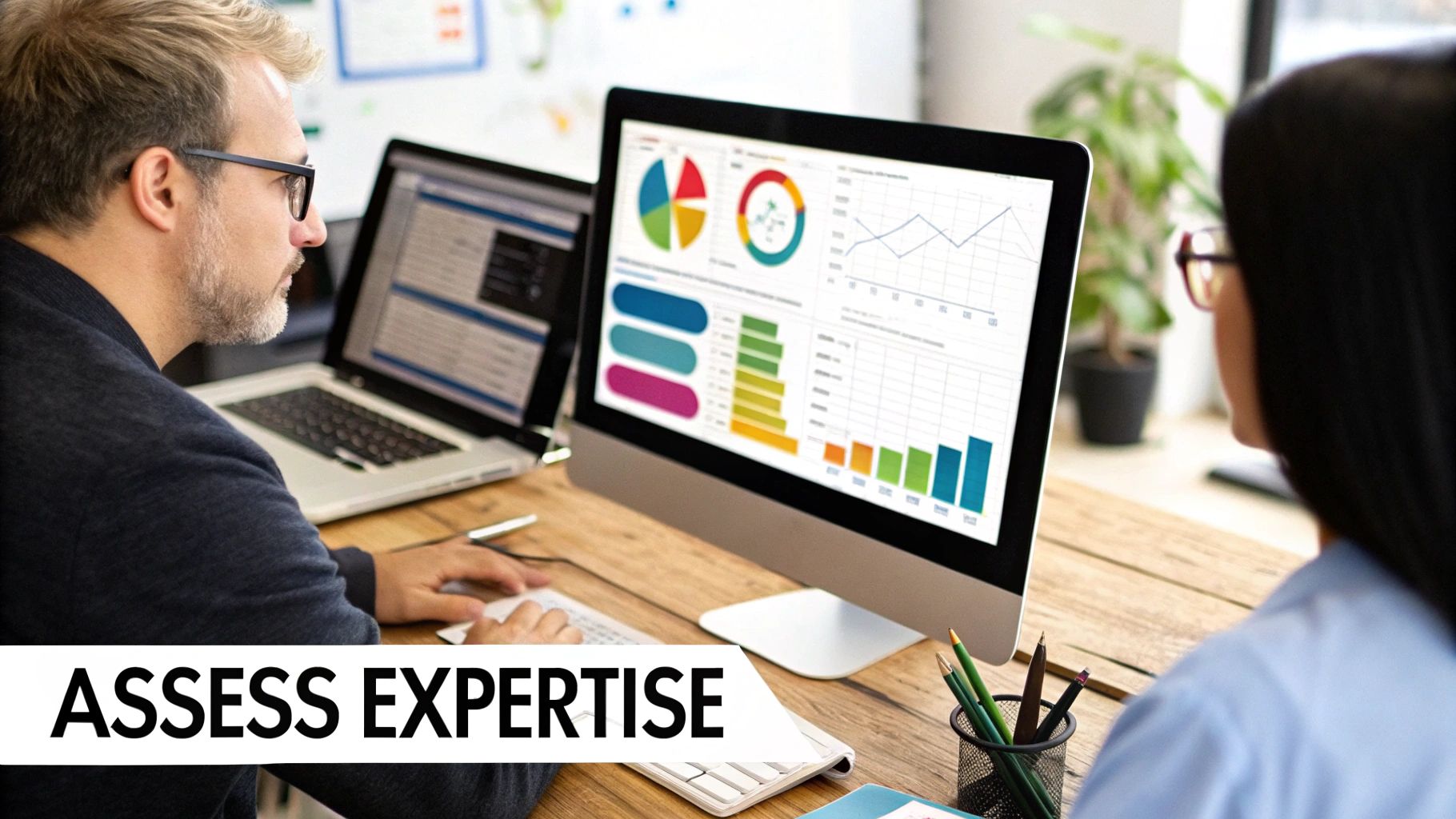
Before you even open a new tab to Google "digital marketing agency," stop. The most critical work happens right now, inside your own business. You absolutely have to know what you're trying to achieve, and I don't mean vague, feel-good goals like "more traffic" or "better brand awareness."
Those are the kinds of empty phrases that make bad agencies light up. Why? Because they're impossible to measure and easy to fake with vanity metrics.
Real success is specific. It's measurable. And it's tied directly to your bottom line. Getting this right is non-negotiable—it's the foundation for finding a partner who will actually deliver a return on your investment, not just cash your checks.
Pinpoint Your Most Critical KPIs
Let's get practical. What does a "win" actually look like for your business three, six, or twelve months from now? Think business outcomes, not just marketing metrics.
Here are a few prompts to get your gears turning:
For Lead Generation: Do you need to generate 50 new, sales-qualified leads through your website every single month?
For E-commerce: Is the real goal to boost e-commerce revenue by 30% over the next two quarters?
For Profitability: Do you need to slash your customer acquisition cost (CAC) by 20% to finally improve your margins?
Answering these questions brings immediate clarity. A goal to lower CAC, for instance, requires a deep, almost obsessive understanding of platform bidding strategies and audience segmentation. That’s a job for a specialist, not a junior account manager at a do-it-all agency.
Vague goals attract vague partners. Specific, measurable objectives are your best defense against bloated agencies that hide behind confusing reports and fluffy metrics. If you can't measure it, you can't improve it.
Understand Your Customer and Their Journey
Once your goals are set, you need to be just as clear about who you're trying to reach. A generic agency will talk about broad demographics. A true expert will want to get into your customer's head.
They'll want to map out every single touchpoint. This is where strategies like expert customer journey optimization come into play, ensuring no opportunity is missed from first click to final conversion.
This level of focus is essential. The worldwide digital advertising market hit around $667 billion in 2024 and is on track to reach $786 billion by 2026. With nearly 73% of all global ad spend now happening on digital channels, you can't afford to just guess where your audience is spending their time.
Set a Realistic and Strategic Budget
Your budget isn’t just a number you pull out of thin air; it’s a strategic tool. A common mistake I see is businesses assuming a larger, full-service agency offers more value for a bigger budget.
Often, the opposite is true.
A huge chunk of that fat retainer you're paying them goes straight to their overhead—fancy offices, sales commissions, and multiple layers of management. What's left for the actual work on your account? Not as much as you think.
When you partner with a dedicated expert or a lean consultancy, nearly 100% of your management fee goes to the strategist who is actually in the trenches, executing your campaigns. This means a smaller, focused budget can frequently outperform a larger one that's being mismanaged.
By defining your success metrics first, you can have a much more productive conversation about what it will realistically cost to hit those targets. It also gives you a rock-solid framework for understanding how to measure advertising effectiveness long before you ever sign a contract.
Comparing a Specialist Consultant and a Full-Service Agency
This is where the rubber meets the road. You’re standing at a fork in the road, deciding between a big, full-service agency and an independent specialist consultant. The path you choose will have a massive impact on your results, your budget, and frankly, your sanity.
Let's pull back the curtain on the traditional agency model. They pitch the "one-stop-shop" dream, promising to handle everything under one roof. It sounds great in a sales call, but the reality is often very different.
The Agency Model Unpacked
Full-service agencies are built to scale. To cover their huge teams, fancy offices, and sales departments, they need to charge hefty retainers. A massive chunk of your monthly investment isn't actually going into your campaigns—it's paying for their overhead.
Because they offer everything from SEO to social media, their expertise is often a mile wide and an inch deep. The senior person who sold you on the dream is almost never the one in the trenches managing your account day-to-day.
Instead, your account gets passed down to a junior manager who’s juggling a dozen other clients. They're following a standardized playbook, not building a custom strategy for you. You end up paying a premium price for generalized knowledge and very little direct access to a real expert.
The Specialist Consultant Advantage
Now, let's look at the alternative. A specialist consultant—say, a Google Ads expert—operates on a completely different model. Their business is built on deep, focused expertise, not client volume. They live and breathe one specific platform, staying on top of every algorithm update, new feature, and advanced tactic.
When you hire a specialist, you get something fundamentally different:
Direct Access to the Expert: The person you hire is the person doing the work. There's no game of telephone with an account manager; you have a direct line to the strategist managing your ad spend and driving results.
Deep, Focused Expertise: You're not getting a generalist. You're getting someone whose entire career is dedicated to mastering one critical channel. That depth of knowledge leads to smarter strategies, faster optimizations, and much better performance.
Greater Agility and Customization: A specialist isn't tied to rigid agency processes. They can pivot quickly to market changes and build a truly custom strategy designed for your specific business goals, not pulled from a template.
Cost-Effectiveness: With minimal overhead, nearly 100% of your fee goes directly toward expert-level work. This model ensures your budget is spent on strategy and execution, maximizing your return.
When you work with a large agency, you're paying for their brand name and their overhead. When you partner with a specialist consultant, you're paying for their brain and their hands-on expertise. The difference in value is enormous.
This visual gives a clear breakdown of the common pricing models you'll run into, from hourly rates to retainers.
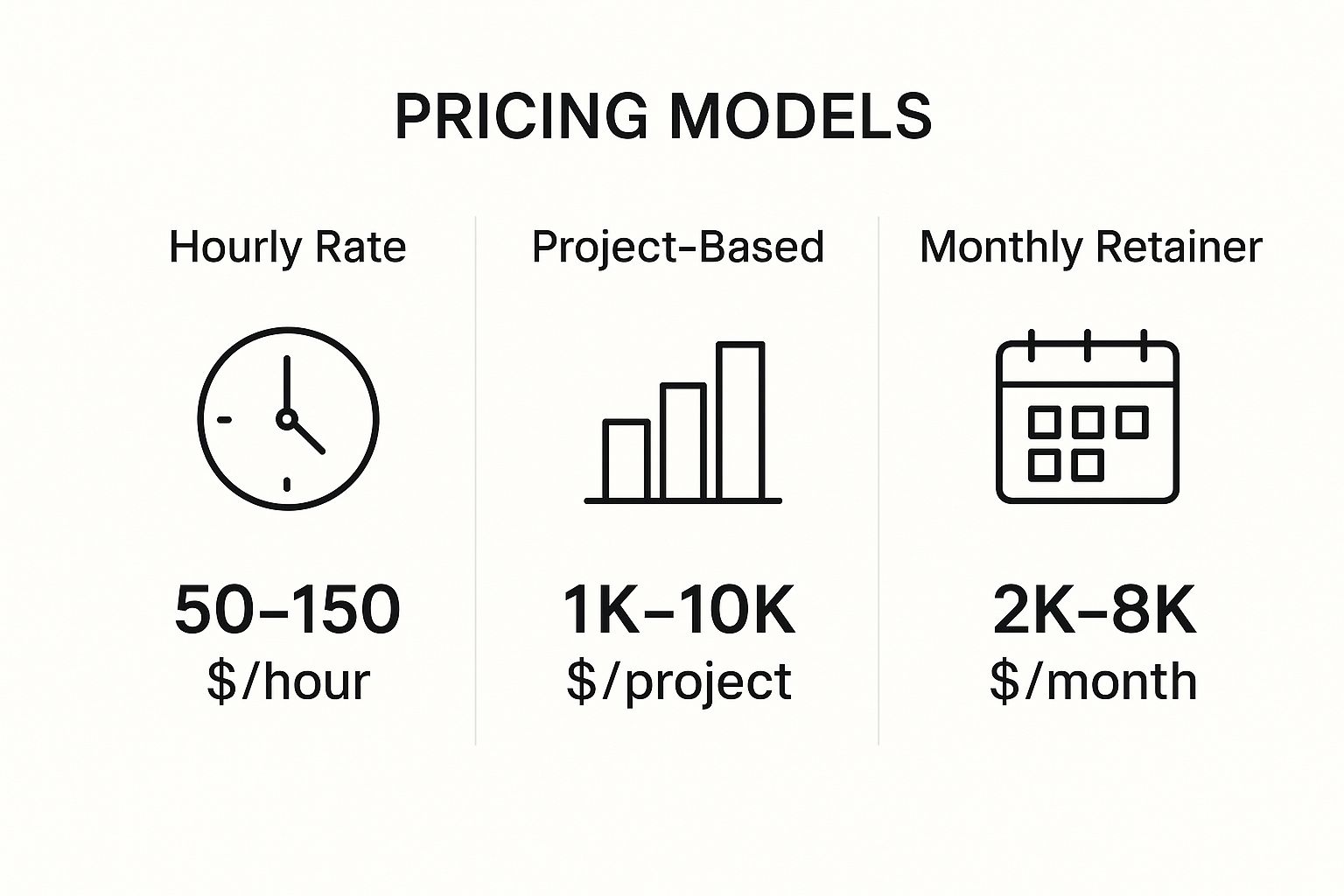
As you can see, the financial commitment can vary wildly. The real question is, where is your money actually going and what level of expertise is it buying you?
To make this distinction even clearer, let's break down the key differences head-to-head.
Comparing a Specialist Consultant to a Traditional Agency
Attribute | Specialist Consultant (e.g., Google Ads Expert) | Full-Service Digital Agency |
|---|---|---|
Point of Contact | You work directly with the senior expert doing the work. | An account manager or project manager is your go-between. |
Expertise Level | Deep, specialized knowledge in one or two core areas. | Broad, generalized knowledge across many marketing channels. |
Strategy | 100% custom, built from the ground up for your goals. | Often uses standardized templates and processes for efficiency. |
Cost Structure | Low overhead; most of your fee pays for expert time. | High overhead; a large portion of your fee covers agency costs. |
Accountability | The expert's personal reputation is on the line with your results. | Accountability is diffused across a team and the agency brand. |
The table really says it all. The decision isn't just about a list of services; it's about the partnership dynamic.
Making the Right Choice for Your Business
Do you want a vendor who just manages tasks, or a strategic partner who is personally invested in your success? An agency’s success is measured by client volume and retention. A consultant’s success is measured by the performance of their small, hand-picked client portfolio. Their personal reputation is on the line with every single campaign.
For a deeper dive into this comparison, it's worth exploring why an expert consultant outperforms most lead generation marketing agencies. The advantages go way beyond simple cost savings and into fundamentally better strategic outcomes.
For many businesses, the bloated agency model is an inefficient and frustrating path. The direct, accountable, and expert-driven approach of a specialist is almost always the smarter, more profitable choice.
The Vetting Questions That Expose Weaknesses
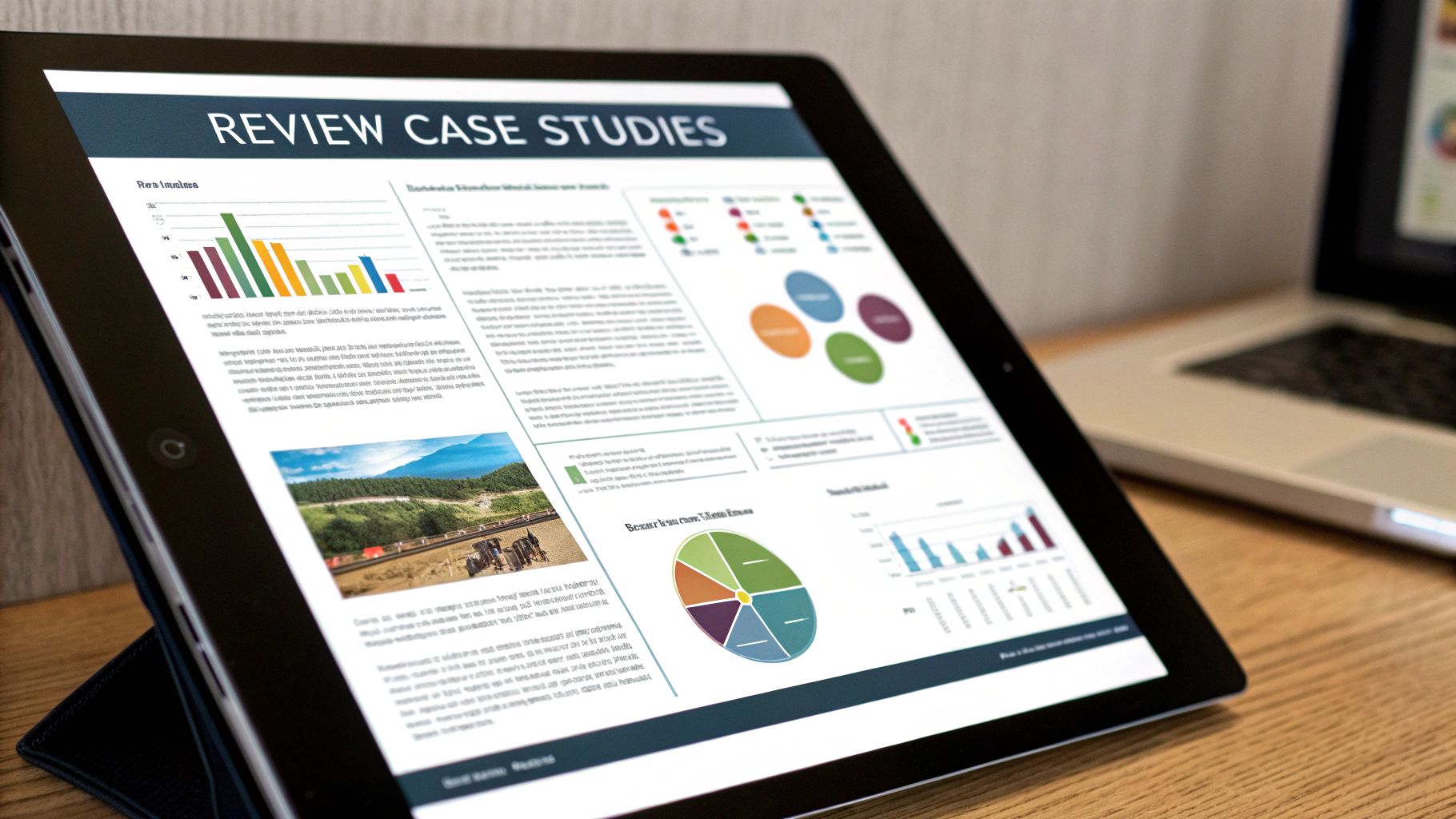
Okay, you’ve got your shortlist. Now the real work starts. This is where we get past the slick sales deck and dig into the questions that reveal who you'll actually be working with.
The goal here isn't just to get the "right" answers. It's to poke holes in the bloated, inefficient agency model. An expert consultant’s entire reputation is on the line with every client, so they live and die by transparency. Big agencies? They often hide behind layers of account managers and red tape.
These questions are designed to cut right through that.
Who Is Actually Doing the Work?
This is it. The single most important question you can ask.
In a big agency, the senior strategist who wows you on the sales call is almost never the person in the trenches managing your account. You have to find out who's really behind the wheel.
Lead with this, and don't let them dodge it:“Who, by name, will be managing my account day-to-day, and can you walk me through their direct, hands-on experience with a business just like mine?”
The immediate follow-up is just as crucial:“Will I have direct, unfiltered access to the strategist running my campaigns for questions and strategy calls?”
A true independent consultant will say, "You're looking at them." An agency, on the other hand, will likely pivot and introduce you to a junior account manager. This is the whole ballgame—you're paying for expertise, so you need direct access to it.
A massive red flag: Vague answers. If they can’t give you a straight answer on who is managing your money and exactly what their qualifications are, it’s the classic bait-and-switch. Your account is destined for an entry-level employee.
Digging Into Strategy and Process
Next, you need to push past their generic case studies and get a feel for how they actually think. A real expert can talk specifics about your industry and budget off the cuff. A generalist will fall back on their standard one-size-fits-all playbook.
Use these prompts to test their strategic depth:
“Walk me through your proposed strategy for a client in my industry with my exact budget. What would you do in the first 30 days?” This forces them to move from theory to application.
“Show me a case study from a client with a similar business model, and explain the *business results* you achieved, not just the marketing metrics.” You're looking for metrics that matter: customer acquisition cost, return on ad spend, and lead-to-sale conversion rates.
“What is your process for communication and reporting?” A consultant usually offers direct, flexible communication. An agency will describe a rigid, templated process that often means slow responses and layers of approvals.
A lot of these same principles apply when you're trying to figure out how to choose a web design agency, since both require a serious look at process and who is truly accountable.
Understanding the Financial Picture
Finally, you need to see how their fees stack up. The market is getting tougher. The average growth rate for digital agencies has slowed to a projected 5% in 2024, a steep drop from 12% pre-pandemic.
At the same time, 28% of agencies are raising their rates, with the most common hourly fees now sitting between $175 and $249. Knowing this data gives you the leverage to ask how their pricing and performance justify their costs in such a competitive environment.
By asking these sharp, direct questions, you take control of the conversation. You’re no longer a prospect being sold to—you’re a buyer evaluating a partner's real value. This is how you find the accountable expert and avoid the overpriced, inefficient agency.
Red Flags That Signal the Wrong Agency Fit
Spotting the warning signs of a bad agency partnership early on can save you a world of frustration and wasted money. When you're figuring out how to choose a digital marketing agency, your ability to see these red flags is your best defense against getting locked into a contract you'll regret.
These aren't just minor annoyances; they're clear signs of a bloated, inefficient model that puts the agency's profits way ahead of yours.
One of the biggest tells? Getting pressured into a long-term, ironclad contract right out of the gate. A true expert who's confident in their work doesn't need to lock you into a 12-month commitment. They're happy to earn your business every single month.
Big, bloated agencies, on the other hand, depend on these long contracts to secure their revenue. They know that initial "wow" factor from their slick sales pitch will wear off fast once you're handed over to a junior account manager.
Vague Guarantees and The Classic Bait-and-Switch
Another massive red flag is hearing vague, over-the-top promises that sound way too good to be true—because they are.
If a salesperson guarantees you a "#1 Google ranking" or promises to "double your leads in 30 days," you should run, not walk. A real specialist knows that great marketing is about constant testing and refinement. There are no magic wands.
This often leads directly to the classic agency bait-and-switch. I once talked to a client who was completely sold by a polished senior executive. Later, they found out their six-figure Google Ads account was being managed by an unsupervised intern. This is the reality of the bloated agency model: you pay for the expert, but you get the novice.
A transparent partner will set realistic expectations grounded in data and experience. They’ll be upfront about the challenges and the real timeline for hitting your goals. Vague guarantees are just a sales tactic, not a real strategy.
Proprietary Traps and Zero Transparency
Be incredibly wary of agencies that use their own "proprietary" software or platforms to manage your campaigns. This isn't innovation; it's a deliberate strategy to hold your data hostage.
If you ever decide to part ways, you could lose all of your historical campaign data, reports, and hard-won insights. You're forced to start completely from scratch.
An accountable consultant, whose personal reputation is on the line, operates with total transparency. They work inside your accounts (like your own Google Ads or Analytics) so that you always own 100% of your data. This one difference separates a genuine partner from a vendor trying to lock you in.
Finally, an emerging red flag is a complete lack of fluency in modern marketing tech. A recent 2025 survey of over 220 agency leaders revealed that 73% agree Generative AI has radically transformed search and SEO.
If a potential partner can't talk intelligently about how they're adapting their strategies for this new reality, they're already falling behind. You can learn more about how AI is shaping future agency trends on digitalagencynetwork.com.
Making Your Final Call and Kicking Things Off Right
After all the research, interviews, and reference checks, the decision usually boils down to one simple thing: who do you actually trust to be an extension of your team?
The right answer is rarely the biggest agency name or the one with the slickest sales deck. It’s about finding the expert who is genuinely invested in your success. You want a partner, not just another vendor cashing a check.
When you’re ready to make that final choice, take a step back. Think about what separates a true partner from a bloated, overpriced agency. It comes down to deep specialization, direct access to the person actually doing the work, and a relentless focus on your business goals—not just vanity metrics.
Setting the Partnership Up for Success
Once you've made your pick, the kickoff is everything. This isn't the time to just hand over the keys and hope for the best. You need to build a collaborative foundation from day one.
Establish Clear Communication: Agree on how often you'll connect. With a specialist consultant, this is usually a direct, informal line of communication—think Slack or quick calls, not a rigid process filtered through three layers of account managers.
Define Meaningful Reporting: Ditch the fluffy, 20-page agency reports that nobody reads. Work with your expert to build a simple, streamlined dashboard. It should track the handful of KPIs you actually care about, like cost per acquisition and return on ad spend.
Collaborate, Don't Dictate: Treat your new partner like a key member of your team. Share insights about your business, your sales cycles, and what you’re hearing from customers. This information is pure gold for an expert who can translate it into smarter campaign decisions.
Trust your gut, but always, always verify with reference checks. The most honest feedback comes from other business owners who have been in your shoes. Their experience will tell you if you’re hiring a hands-on strategist or just another faceless vendor.
Ultimately, knowing how to choose a digital marketing agency is recognizing that you're not just buying a service; you're investing in a strategic relationship.
By choosing an accountable, specialized expert, you’re not just hiring someone to manage your campaigns. You’re bringing on a dedicated partner who is just as committed to driving real, measurable growth as you are.
Frequently Asked Questions
When you're trying to figure out how to choose a digital marketing agency, a few key questions always come up. Let's tackle them head-on, so you can avoid the overpriced, bloated agencies and connect with a real specialist.
What Is a Realistic Budget for a Good Digital Marketing Consultant?
This is the big one, and the answer always depends on your goals and how crowded your industry is. But for expert-level management, you should plan to invest at least a few thousand dollars per month.
Here's the crucial part: you’re paying for expertise, not office space and a fancy coffee machine. When you hire a specialist consultant, that entire fee goes to the strategist actually doing the work.
It’s a world away from the big agency model where a huge slice of your payment covers their administrative bloat, and a junior employee who is still learning the ropes ends up managing your account. The real focus should always be on the return you get, and a specialist almost always delivers more value than a big firm charging the same fee for less experienced staff.
Am I Better off With a Long-Term Contract or a Month-to-Month Agreement?
For most businesses, starting out with a month-to-month or a short-term agreement (like three months) is the smart move. It gives you the freedom to make sure the partnership is actually delivering results before you're locked into a long, frustrating contract.
An expert who is confident in their ability to get you real growth will almost always be comfortable with this. Their reputation is built on performance, not on trapping clients in 12-month commitments.
Frankly, if an agency is pushing hard for a year-long contract from day one, it’s a massive red flag. It tells you their priority is securing their own revenue, not delivering your success.
What if I Need Help With More Than Just One Service Like SEO and Google Ads?
This is a great question because it gets to the heart of a common dilemma. Instead of settling for a "jack-of-all-trades" team at one big agency, an experienced consultant will have a trusted network of other elite specialists.
This lets you build a flexible "dream team" of top-tier experts for each specific channel you need. You get a true, dedicated specialist managing each part of your marketing strategy.
This model ensures every single dollar is put to work with maximum efficiency and expertise. It’s the difference between generic advice and a finely tuned profit machine. For a deeper dive into how a specialist thinks about profit, check out our guide on how to calculate return on ad spend for real profit.
Ready to partner with a dedicated Google Ads expert who is focused on your bottom line, not billable hours? At Come Together Media LLC, you work directly with the specialist. Schedule your free, no-commitment consultation today and get actionable insights to improve your campaigns. Learn more at https://www.cometogether.media.




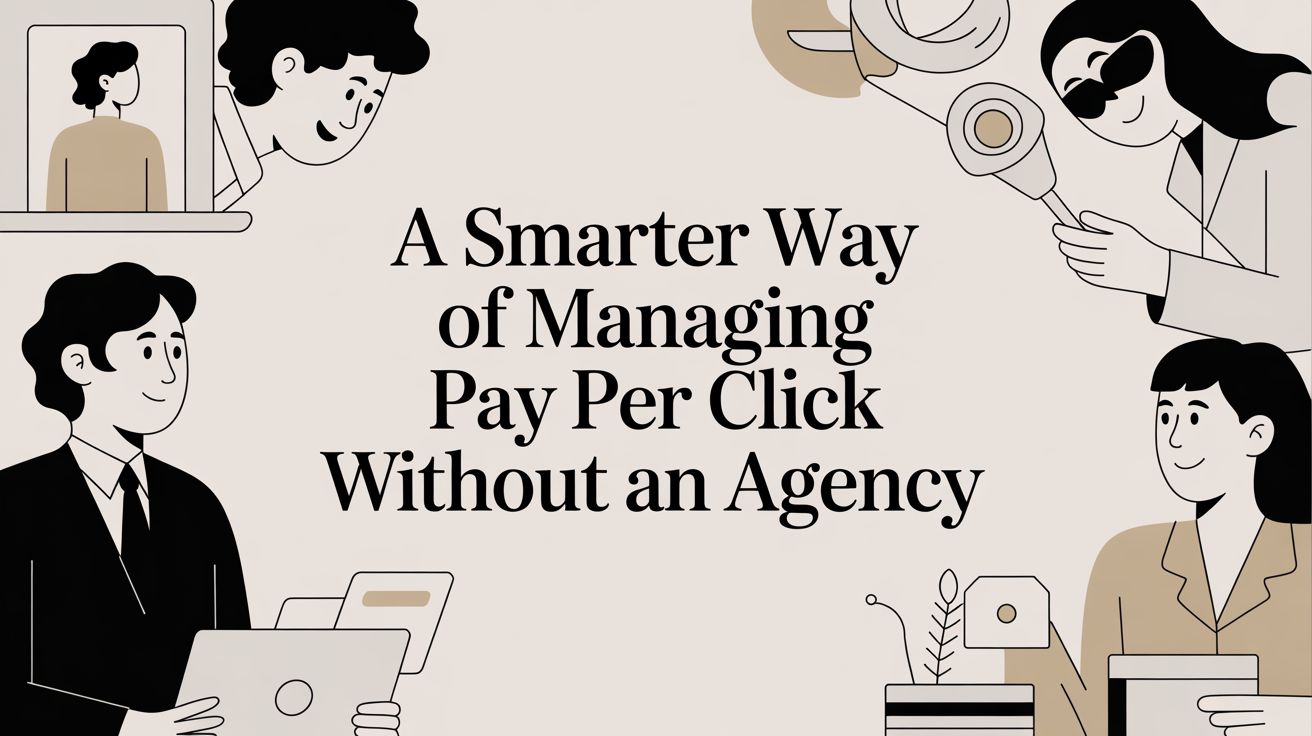
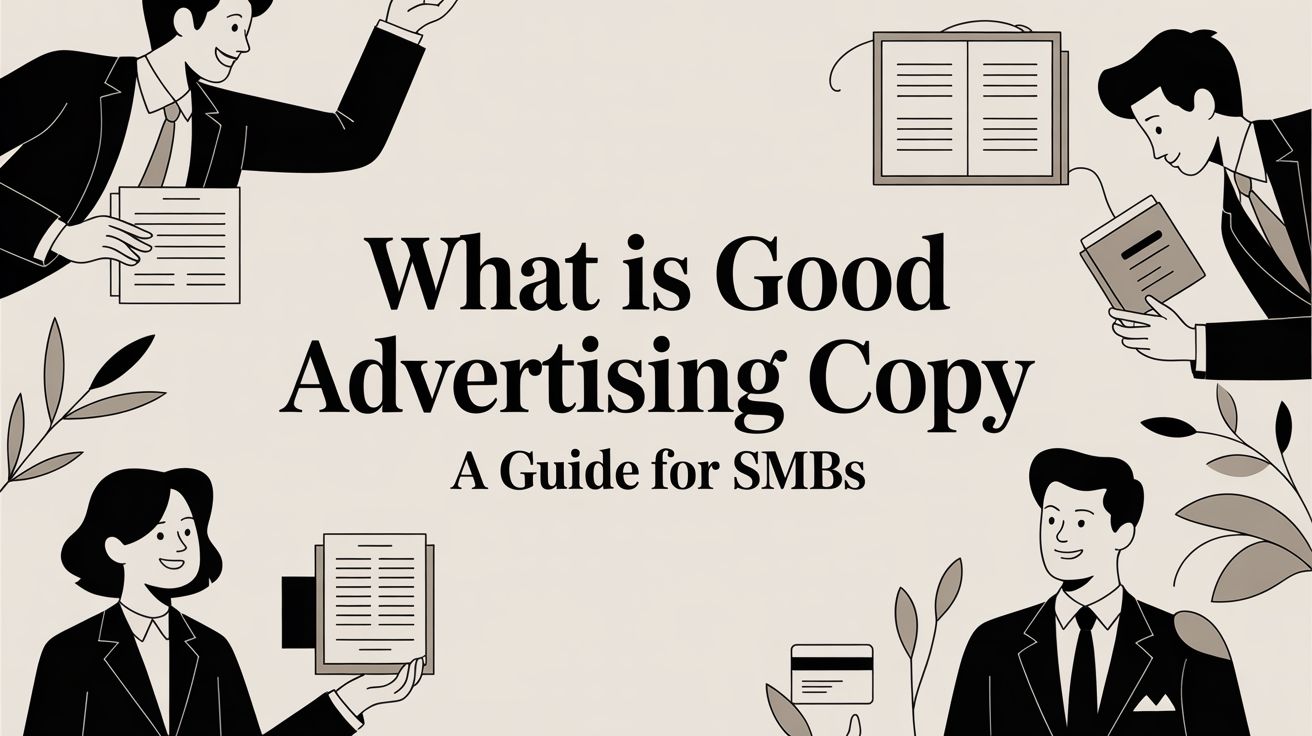
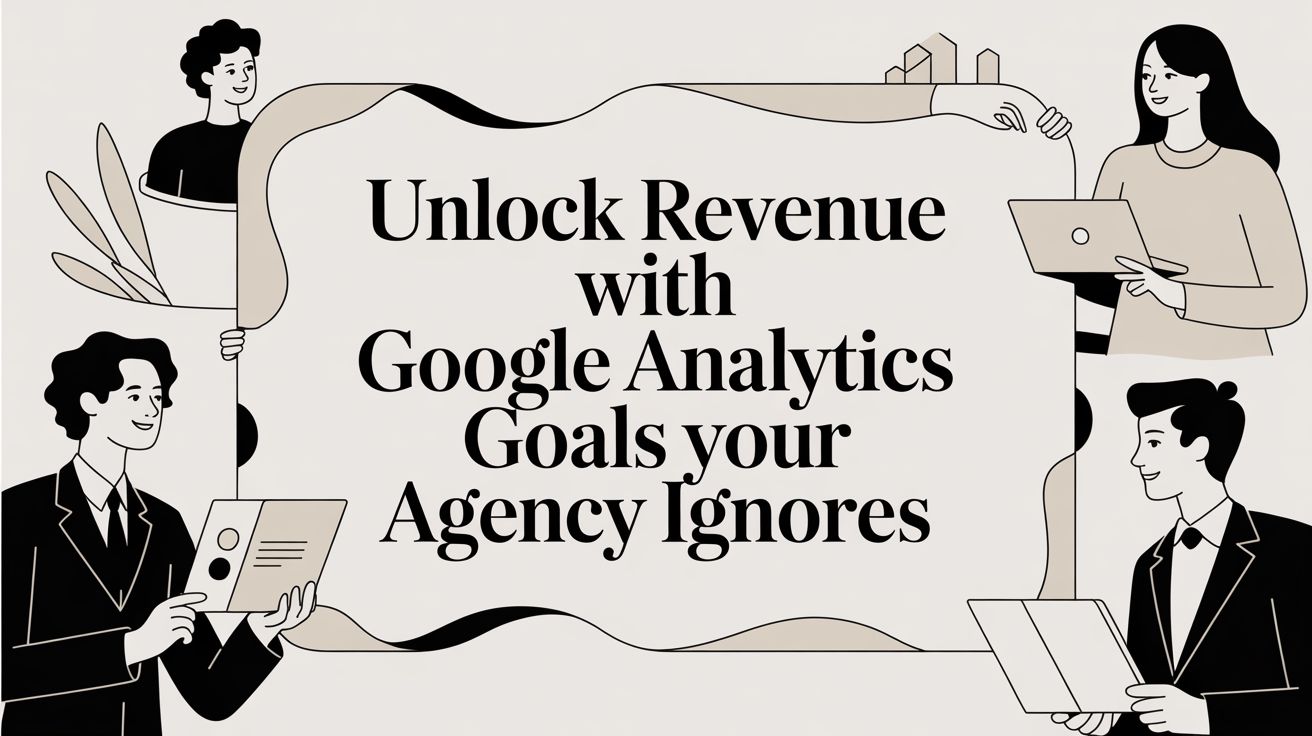
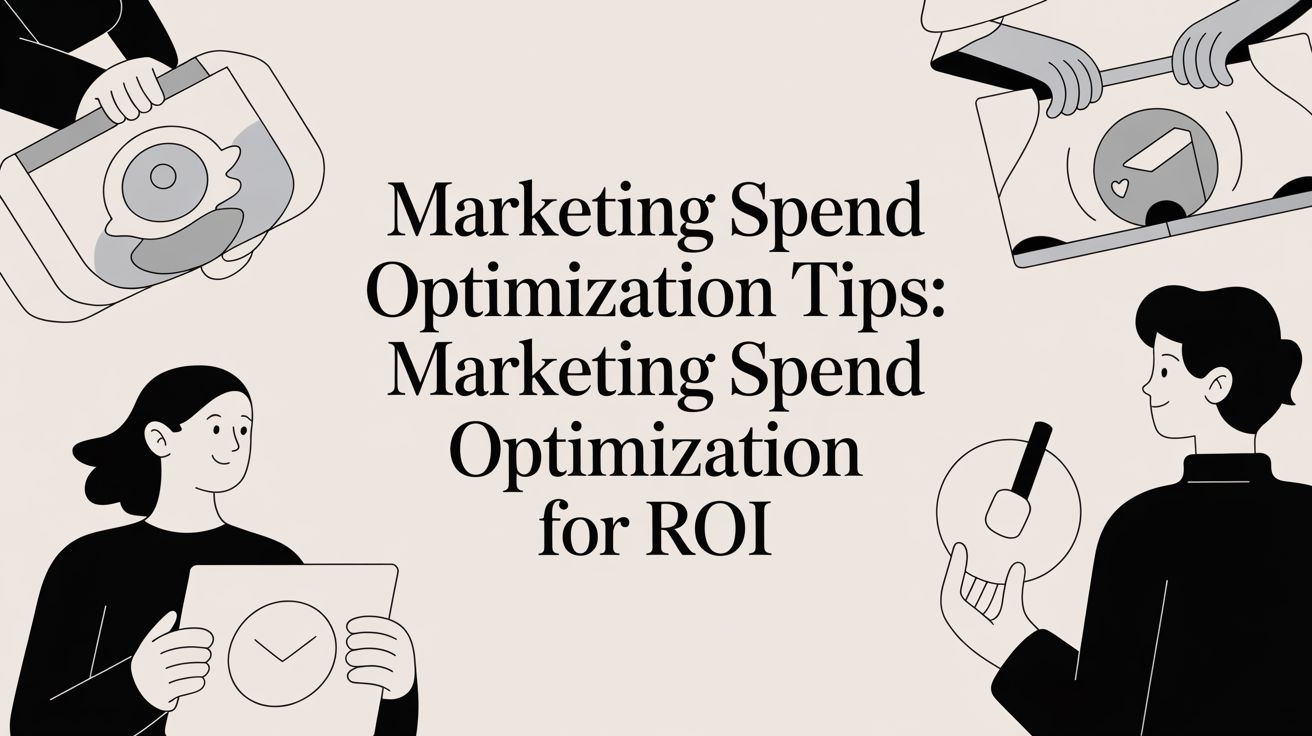
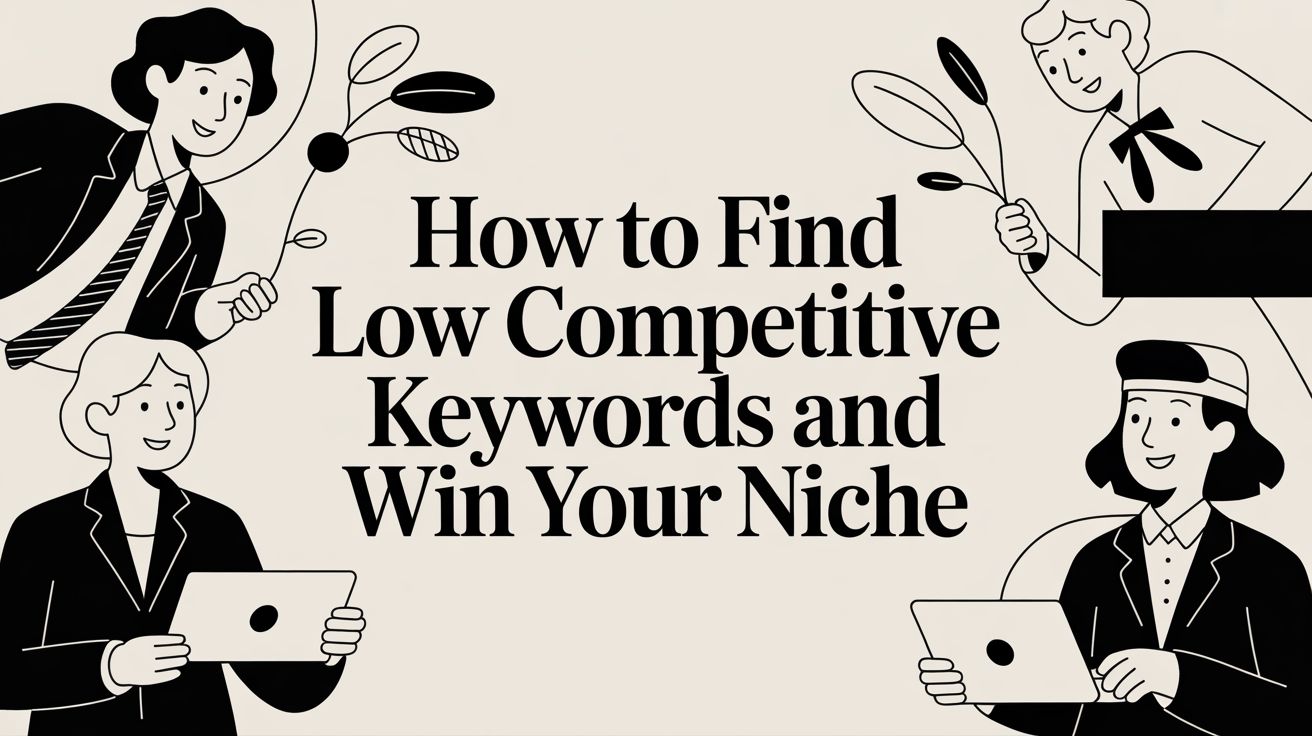
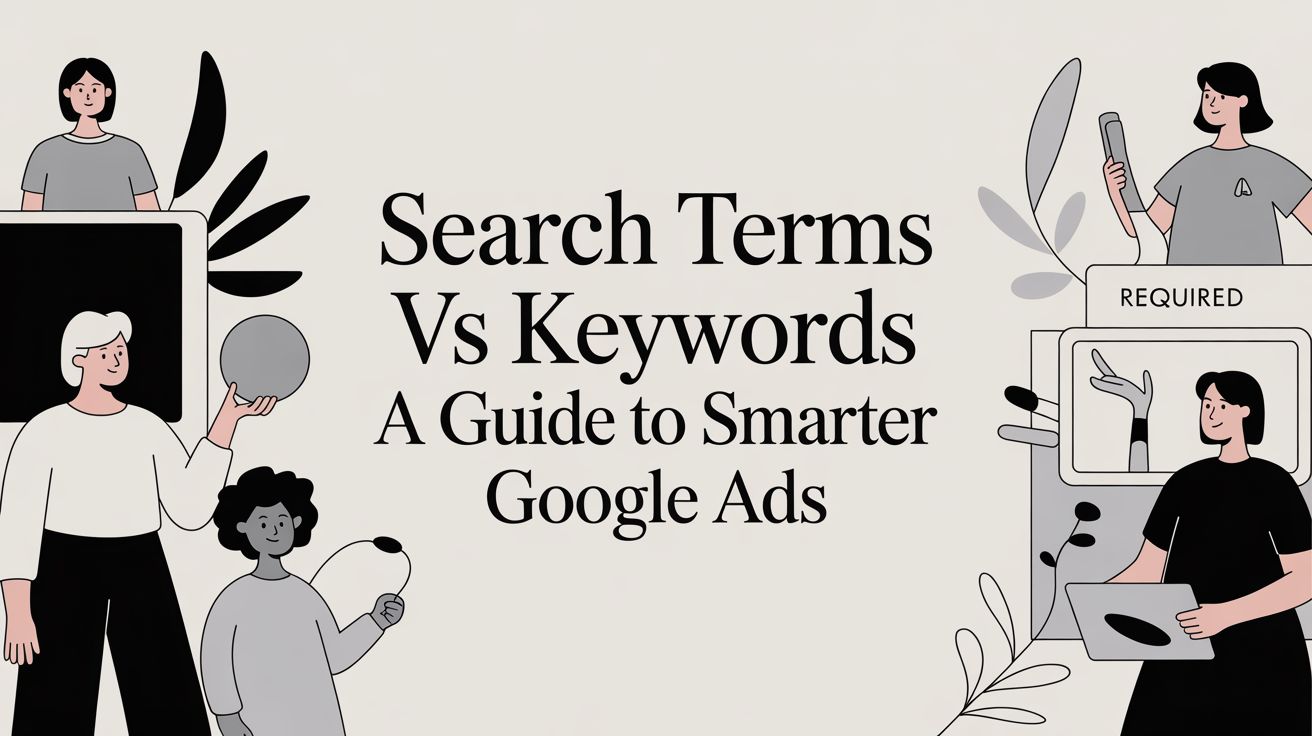
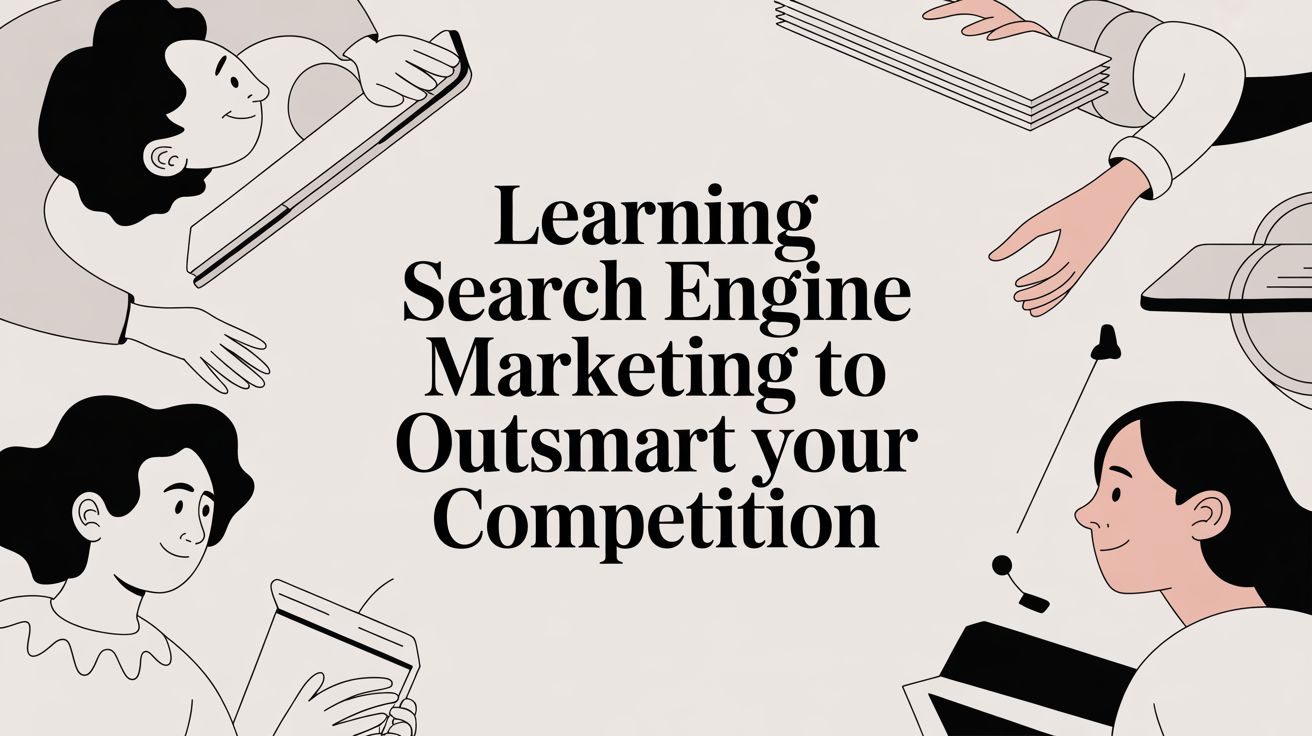

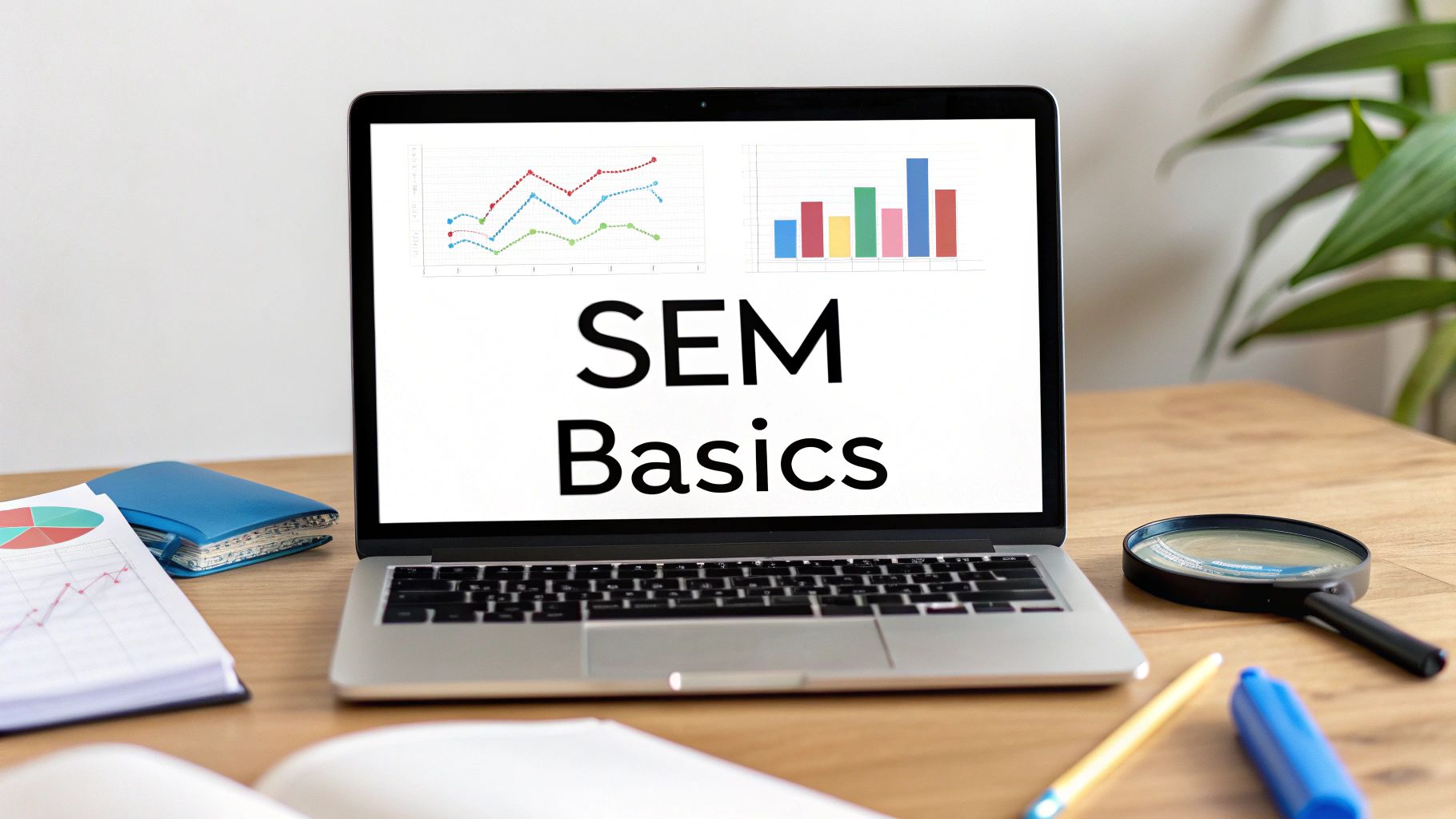
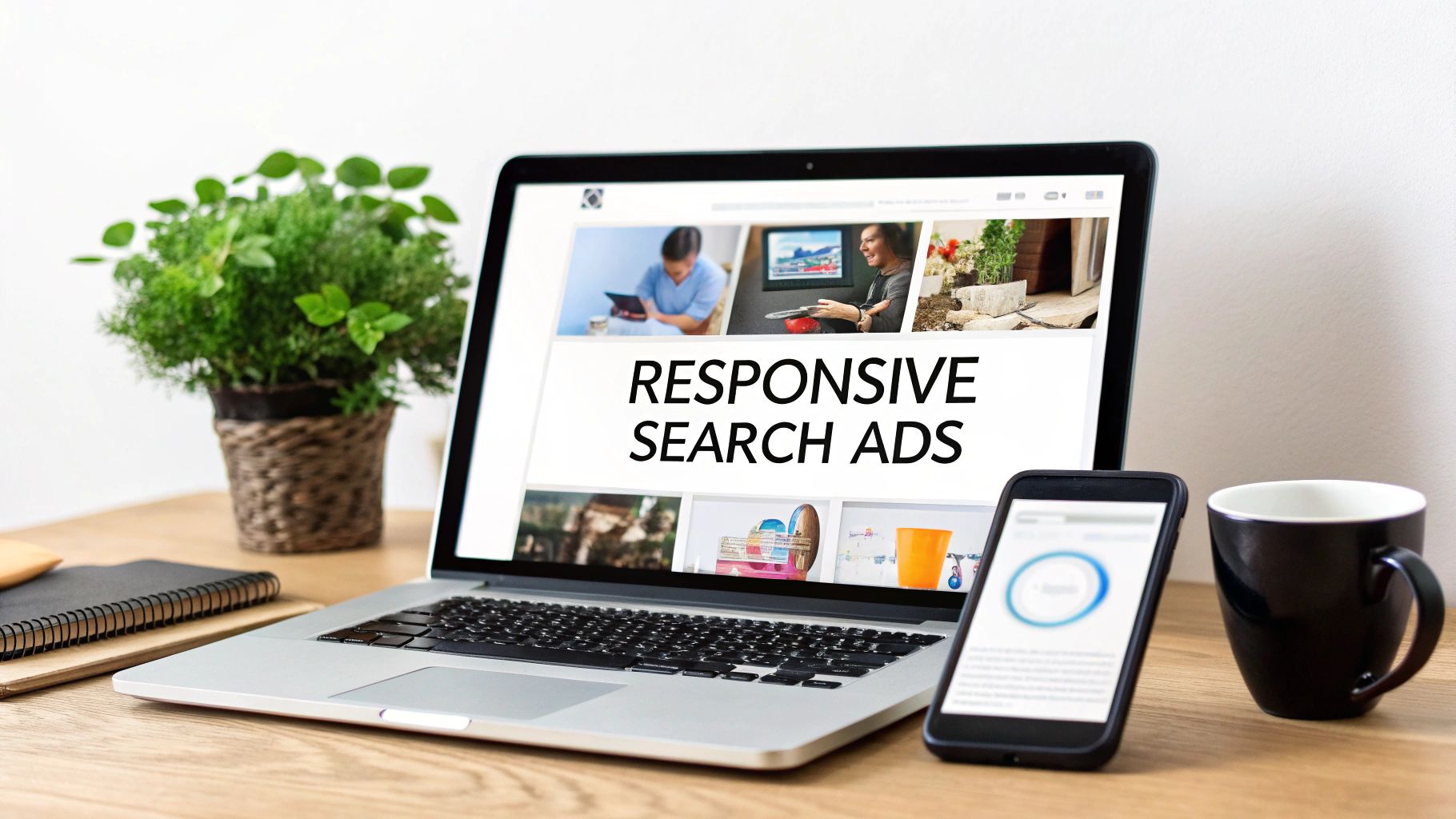
Comments